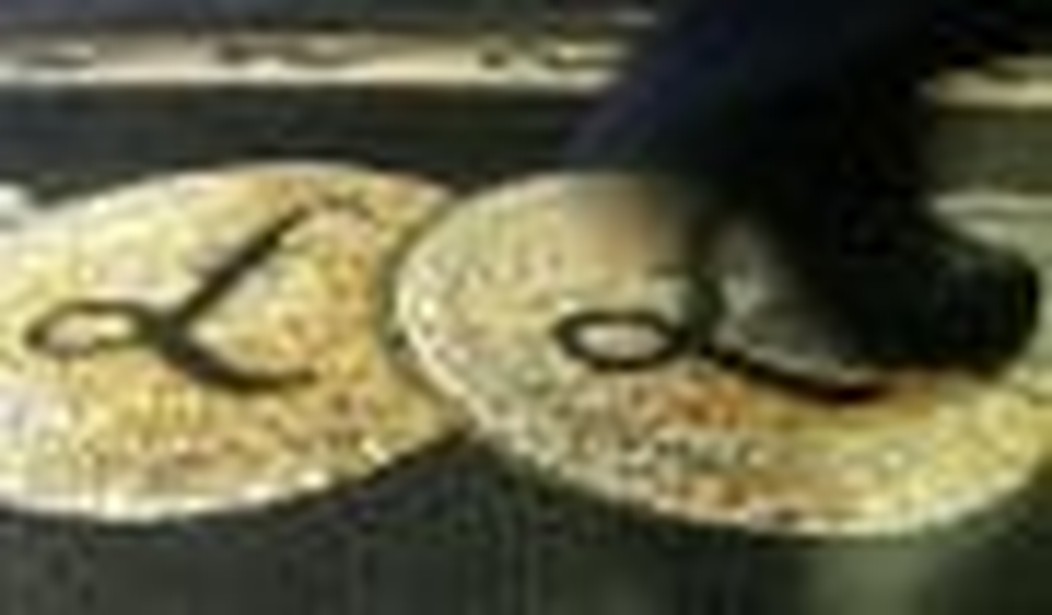In a bizarre twist of political fate Britain’s Prime Minister Gordon Brown has actually gone up in the polls of late after his fate was unsettled in the lead-up to his annual party conference last month. Despite the fact he had a hand in the country’s financial situation, as Chancellor of the Exchequer for 10 years, the public seems to think that he is the best man for the job.
It surely helps that his plan has been adopted by the rest of Europe as they slowly realized that their “European model” of banking did not make them immune from banking problems. In fact at one point one European bank per day was announced to be in financial trouble. In an unprecedented move Gordon Brown was invited by Sarkozy to an emergency meeting of the Eurozone countries, even though the UK is not part of it. The whole debacle may in fact end the Euro in its current form, at least with its current number of members, and pretty much assures the UK will never be a member.
As with the U.S., most people on High Street (U.K.’s Main Street) had no sympathy whatsoever for the bankers who were losing their jobs in the city of London by the thousands. The bite is starting to show as the UK government has finally had to admit that the level of unemployment in the UK is going up quickly:
Official figures show that the jobless total leapt by 164,000 between June and the end of August. The higher-than-expected increase — of 0.5 percentage points to 5.7 percent — is the biggest since 1991 and the eighth successive monthly rise.
Not only that, but the Treasury has finally had to admit that growth has slowed significantly and that inflation is higher than previously admitted. These two effects are rather obvious to most people on the street here.
In the light of the unprecedented semi-nationalization of eight leading British banks by the British government that was announced last week, there are repercussions not quite imagined.
The most striking example of this was the failure across the board of Icelandic banks. Now you would not expect this to be a major effect on UK householders, but it might be a problem for some time to come. It is not just those UK citizens with funds in Icebank, which went under, freezing all their assets and causing a great deal of consternation among ordinary savers, but many of the local councils in the UK have put taxpayers’ money on the island due to their high interest rates:
The number of councils in England and Wales which invested money in Icelandic banks has grown to 116, depositing a total of £858 million, it has emerged. That works out at about £7 million per council.
It’s a major problem for new chancellor Alistair Darling, who has been in talks with the Icelandic government over the various members of British society in danger of losing their money in Iceland.
However, the most interesting event that has occurred as a result of the financial fallout is related to the referendum on Scottish independence. First Minister of Scotland Alex Salmond has included the referendum as part of his most recent policy promises. His reaction to the fact that two of the major bank failures happen to be leading Scottish banks — the Royal Bank of Scotland and HBOS– has been most satisfying to the prime minister:
The prime minister said the underlying message of the rescue package announced this week for banks, including the Scottish giants Royal Bank of Scotland and HBOS, was that Britain was stronger together and weaker apart.
So bad is the situation that Mr. Salmond had to ask the British taxpayer for £1 billion to help cover the costs of bank failures. The fact that the British government had to step in to bail out both of these banks does make the case that had Scotland not been part of Britain, it would have been in serious financial trouble. There is even speculation that Scotland would be suffering in the same manner as Iceland. In fact, Salmond has been on record comparing Scotland to Iceland:
He also attacked the SNP’s claim that an independent Scotland would perform better emulating smaller countries such as Ireland, Norway, and Iceland — the so-called “arc of prosperity.”
It must really grate Scottish nationalists like Salmond that HBOS (Halifax Royal Bank of Scotland) will cease to be Scottish when it’s taken over by Lloyds TSB, which also owns the Scottish Bank. They are reacting rather badly to the prime minister’s comments on the state of the union.
As it is said in the UK, “it’s early days,” and the effect on the British economy and its people is yet to be determined. It is not clear how long they will be able to snicker at the plight of bankers in the City until they suddenly find themselves in dire straits.









Join the conversation as a VIP Member